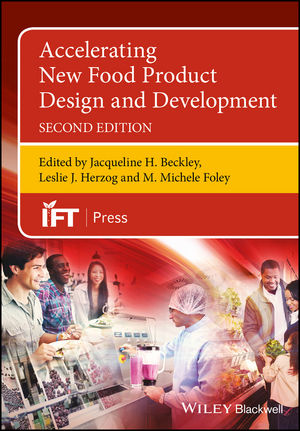Interest in health, wellbeing drives better-for-you chocolate products
Consumers look for healthier chocolate products, while still indulging.

Courtesy of Global Organics
The Bottom Line:
- Consumers crave chocolate
- Associating chocolate with health benefits
- Searching for indulgences
In 2021, chocolate grew to $16.7 billion in sales, based on IRI data ending December 26, 2021. The confectionery category includes chocolate, non-chocolate, gum, and mints. Chocolate sales improved in dollars, units, and volume, recording an increase in dollar sales of 9.2% for the 52-week period.
People love chocolate, as confirmed by Cargill’s proprietary ChocoLogic survey, designed to better understand consumers’ preferences, motivations, and attitudes about chocolate. The survey found only 3% of consumers avoid chocolate. More than half (52%) of Americans find chocolate gets them through a tough day. Those perceptions, combined with more at-home snacking occasions, help explain why one in three shoppers report increasing chocolate consumption during the pandemic, shares Gretchen Hadden, marketing manager, Cargill Cocoa & Chocolate – North America.
The study also found nearly 7 in 10 people associate chocolate with health benefits, a characterization even more prominent among consumers of dark chocolate. Perhaps, unsurprisingly, the survey found this perception is a key purchase driver for dark chocolate, with 25% of consumers choosing it because they believe it’s healthier.
An indulgent experience
Consumers also look to chocolate for indulgence. Chocolate is one of the first places they look to indulge, with 65% of U.S. consumers agreeing that chocolate is their favorite indulgence, and 70% of U.S. consumers choose chocolate for their celebrations, according to research by Barry Callebaut.
Hadden notes one of the big trends they are tracking in the snack and bakery space is over-the-top indulgence, and nothing delivers indulgence like chocolate and cocoa ingredients.
Cargill offers several chocolate ingredients that can help create an indulgent experience. The Gerkens Duchess cocoa powder, specifically designed for baked goods, delivers a complete sensory experience. To dial up the chocolate flavor even more, the company offers Wilbur Duet, which functions like a cocoa powder, but includes ground chocolate liquor for a more intense chocolate flavor experience.
Another approach to make a moment of indulgence more memorable is to “incorporate exotic or unique ingredients within the product. For example, simply adding red beetroot powder and Lapsang Souchong Tea within a dark chocolate truffle not only provides a flavor not often experienced, but takes their tastebuds on a global exploration,” explains Dale Williams, technical manager at Chaucer Foods, Hull, UK.
Added health and wellnes benefits
Drew Brandell-Mayers, product manager, chocolate, Puratos, notes the company is seeing a significant move towards health and well-being products.
“Consumers are increasingly seeing chocolate as healthy, with nearly 50% of consumers saying so. Not only do they see chocolate as inherently healthy, they are looking for new, healthier versions of chocolate, whether they have reduced or no sugar, are plant-based, or have increased cocoa percentage, or added protein.”
The company seized this opportunity and will be introducing a Plant Based Milk Alike Chocolate in 2023. “The truly indulgent, no-compromise Plant Based Milk Alike Chocolate from Belcolade, real Belgian chocolate, is a patent-pending, plant-based milk alternative that delivers on a truly indulgent and creamy texture you’d expect from a milk chocolate, while having no dairy, nut, or soy allergens. It has a fine cocoa flavor with nutty notes,” he says. Some of the benefits of the product are better taste and a range of claims including sustainable, made with Belgian chocolate, plant-based, and dairy-free. The product can be used in plant-based desserts such as truffles and bars, and is great for enrobing and panning.
Heidi Liu, product line manager, Blommer, noted that “according to 2021 U.S. Consumer Snacking survey by FMCG Gurus, sugar content is ranked No. 1 when consumers are considering a snacking product such as confectionery and cookies. CPG brands are heavily investing in low- and reduced-sugar new product launches to meet this consumer need. According to Mintel GNPD, 15.9% of snacks and 8% of bakery products launched during the past three years have low-sugar/reduced-sugar as top claim, surpassing other health and wellness claims such as sugar-free, vegan, and GMO-free.”
The company’s commitment to health and wellness drove its latest Discovery line innovation. “Blommer Chocolate Company and DouxMatok, a food tech company spearheading sugar reduction with its sugar-based reduction solution, Incredo Sugar, have a strategic commercial partnership to produce and sell a game-changing portfolio of chocolate products with significantly less sugar. Together, the companies have developed a breakthrough in chocolate applications,” shares Bo Kim, food scientist, innovation at Blommer.
Incredo sugar is made from real cane sugar. “The proprietary technology improves the efficiency of sucrose delivery to the sweet taste receptors which results in not needing as much sugar or a high intensity sweetener to get the same sweet sensation that consumers desire. The chocolate is then made from real sugar that in effect is up to 1.5 times as sweet as regular sugar,” notes Jenna Derhammer, innovation manager, Blommer.
This first product introduced was chocolate-flavored chips that are ideal for bakery and snack applications. The company has expanded the line to include additional coatings that can support applications across a broader range of products including panning, enrobing, and molding intended for confectionery and snack applications. The benefit of this new technology and resulting chocolate is that it has all the positive flavor attributes of a full-sugared chocolate, but at a reduction of 30–50% sugar declaration for the consumer label.
Global Organics has added a new product to its portfolio. Agostoni has always been a market leader with very high-quality organic chocolate. It is now producing luscious dark chocolate chips sweetened with coconut sugar.
“These organic dark chocolate chips have no added dairy or dairy substitutes, lower sugar content than milk chocolate, and coconut sugar is low glycemic (GI 35). They have no added emulsifiers, soy lecithin, or vanilla letting the dark chocolate notes shine on their own. The dark chocolate flavor is fruity (red fruits), with an extra molasses/fruity note from the coconut sugar,” explains Cathy Fichtner, cocoa & chocolate category manager at Global Organics. The organic dark (48% cocoa level) chocolate chips can be used in any baking or bar application, are suitable for paleo, keto, and low-carb diets, and are available as both organic and organic fair trade certified.
Tate & Lyle offers ingredient solutions that can help with reduced sugar or no added sugar chocolate ingredients for baked goods.
“DOLCIA PRIMA Allulose can be used at up to 25% to significantly reduce sugar. It has a caloric content of 0.4 kcal/g and does not label as sugar on the nutrition facts panel. Because it is a nutritive sweetener, the standard of identity can be maintained when using allulose to make great tasting, better-for-you chocolate ingredients. For no sugar added applications, ingredients such as PROMITOR Soluble Corn Fiber can be used in combination with high potency sweeteners such as TASTEVA Stevia or SPLENDA Sucralose to make great tasting no sugar added chocolate with added fiber,” shares Susan Butler, senior technical category manager, nutrition, bakery, & confectionery, food & beverage solutions, Tate & Lyle.

When using an ingredient such as PROMITOR Soluble Corn Fiber or high intensity sweeteners, it will impact the standard of identity so words or descriptors such as “chocolatey” will need to be used.
Sourcing, supply chain, and sustainability
Fichtner notes seeing strong consumer demand for certified products such as organic, fair trade, non-GMO. “Consumers are increasingly interested in the details. We are seeing questions about where the cocoa is grown and under what conditions—is it shade, how are the farmers accounting for carbon, how are they rebuilding/regenerating soil, how do we know there is no child labor? It seems as though today’s consumers have learned the basics and are now seeking out cocoa and chocolate that they know is grown in a way that doesn’t contribute to climate change and supports their own values. We have been sharing details about the cocoa cooperatives and their practices and seeing this information appearing in our customer’s Instagram and other social media postings.”
Brandell-Mayers shares the company’s commitment towards sustainability. “Sustainability is the cornerstone of our chocolate sourcing and messaging strategy. We aim for a fully sustainable cacao supply chain, with our proprietary Cacao-Trace program at the very center. Our Cacao-Trace program ensures better flavor and taste through expert fermentation and gives back $0.05 per pound to the Cacao-Trace cocoa farmers in addition to a premium price for the beans. The program not only creates better tasting chocolate and better livelihoods for our farmers, but it enables our customers to communicate their commitment to sustainability.”
“Through Cargill’s Promise Solutions, customers can purchase cocoa sourced directly from our known and trusted farmer organizations. For customers who wish to go further, we provide an avenue for brands to invest in the cocoa-growing communities where we source our cocoa. This could be in the form of sponsoring a shade planting tree initiative or contributing to women’s economic empowerment program. By doing this, our customers can help secure a more thriving cocoa sector for generations to come and directly support initiatives that align with their brand promise. As a final step, we connect brands to the farming communities that provide their cocoa through our CocoaWise digital customer portal, which provide unprecedented access to data, information, and stories about the communities that supply their cocoa,” shares Hadden.
Blommer has a long tradition and dedicated effort to protect natural resources, eliminate child labor, and lift farmers out of poverty through its sustainability programs. Alongside improved nutrition and clean-label ingredients, another highlight of the Discovery products is that they are all made with non-GMO and sustainably sourced ingredients.
Puratos is seeing record demand for chocolate, along with continued challenges of labor and container shortage, a volatile raw materials market and record pricing, and not enough capacity industry-wide. The company is working to bring more capacity online to help alleviate the capacity constraint, including building a new Belcolade (real Belgian chocolate) plant in Belgium and significantly increasing capacity at its domestic plant in Kenosha, WI.
Chocolate is an ingredient that will continue to delight consumers, whether they are looking for an indulgent experience or a better-for-you treat. SF&WB
Looking for a reprint of this article?
From high-res PDFs to custom plaques, order your copy today!






